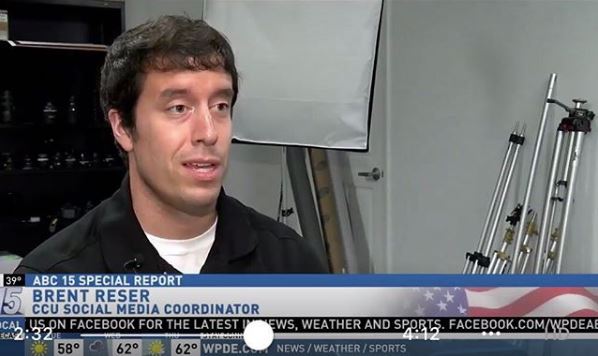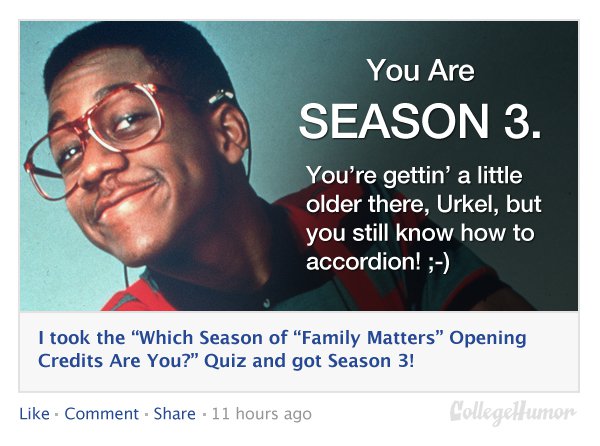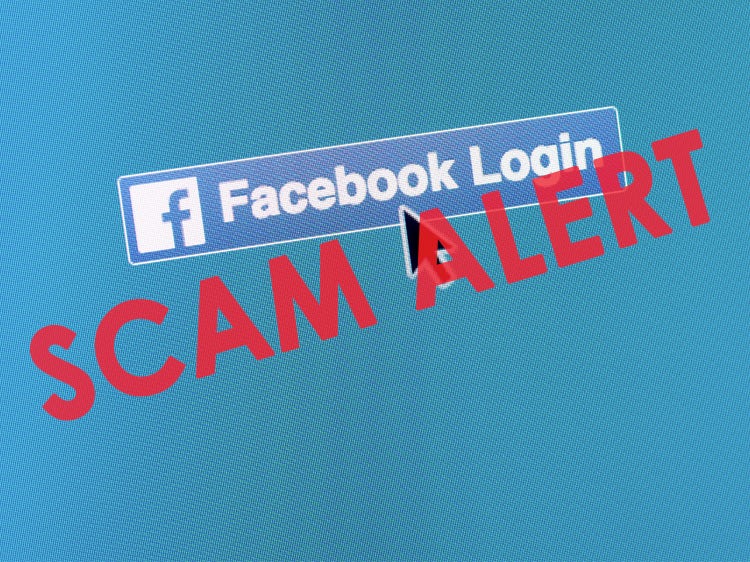Given the current state of Facebook, it is safe to say we are subjected to a substantial amount of garbage each time we “go for a little scroll.” Political rants, fake news, multi-level marketing, annoying blog links (haha), and GoFundMe scams are just a few examples of awful content we sift through.
If not for all that I just mentioned above, perhaps online quizzes would be Public Enemy No. 1 when it comes to undesirable Facebook content. However, because of the proliferation of partisan venom, untrue headlines, and shameless sales pitches on our newsfeeds, spotting a quiz that promises to identify your spirit animal is almost a welcome relief. However, take it from me, Facebook quizzes are sometimes more trouble than what they are worth.
I recently sat down with WPDE ABC15 anchor Summer Dashe to discuss the dark side of social media quizzes. Summer used our discussion along with other interviews to put together an extremely well-done and creative package. It aired during the station’s big post-Academy Awards Sunday night newscast. Click here to view the story.

I had the pleasure of sitting down with Summer Dashe with WPDE ABC15 to discuss Facebook quizzes.
During the interview, the major point I told Summer was that some social media quizzes are absolutely harmless – but others aren’t.

I mean come on, how bad can a quiz be that tells you which season of “Family Matters” opening credits you are?
Most of the time, at the very least, the makers of these Facebook-based personality tests are going to capture your profile information and potentially sell it to third parties so they can target you in ads. It is simply the day and age we live in. The current advertising climate places a very high premium on digital advertising and companies are willing to shell out money for lists of people who fit within their target audience. If you don’t mind the phenomenon of having a digital ad served to you that seems to read your mind, you don’t need to stress too much about this.
However, unfortunately, sometimes these seemingly harmless Facebook quizzes are a little more sinister. Some exist solely to hijack your information and make duplicate social media profiles of yourself. Selling “likes” and “followers” is a big business. Companies who specialize in this trade will provide their clients with a load of FAKE and duplicated profiles, created off of the information you consented to release before taking the quiz. Even more shocking, some quiz makers will take the information you provide entirely off the digital sphere and use it for classic identity theft purposes in the physical world.

Thank you to Summer Dashe of WPDE ABC15 for producing an educational and creative story.
Finally, some sketchy social media quiz makers will practice what is called like-farming. Think of it as a bait-and-switch – a Facebook quiz claiming to tell you what Disney princess you are appears on your newsfeed. All you have to do is click on the link to start the assessment. Much to your horror, instead of taking you to a multiple choice quiz, you are taken to a website that infects your computer with malware. The link originally started out as a legitimate quiz that garnered a lot of likes and shares. After it established credibility, the scoundrels behind the quiz edited the post and changed the link. Watch out for this dirty trick!
I gave two big recommendations to Summer:
1. Don’t participate in Facebook quizzes that ask to access your Facebook profile or ask you to log in to Facebook. Consenting to these requests, which is usually as easy as clicking on a blue bar, will sell out your information to the entity administering the quiz.

Even though it might look official, don’t click on blue bars that ask you to login to take a quiz.
2. If you have an appetite for knowing what “Saved by the Bell” character you are or what ice cream flavor best describes your personality, take a Buzzfeed quiz. Not only is Buzzfeed the most popular option for online quizzes, it is also the safest. Buzzfeed won’t ask for any of your information before taking the quiz but will give you a safe option to post your results to Facebook at the conclusion of it.
In the most general terms, use common sense. Before clicking on a social media quiz, scrutinize it for a couple seconds. Blue bars, long URLs, misspellings, and obscure graphics are all signs to accept an F on the quiz by just not taking it.
Thanks again to Summer and WPDE for the effort they put forth to produce such a well-researched story. An important message was delivered to the Myrtle Beach area, one that everyone else in the country could benefit from. Don’t Blink.
